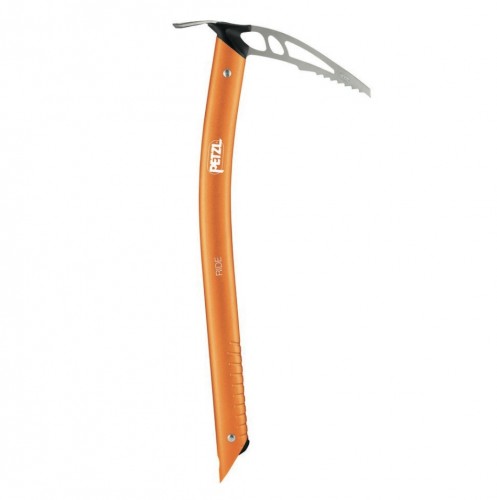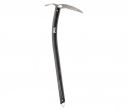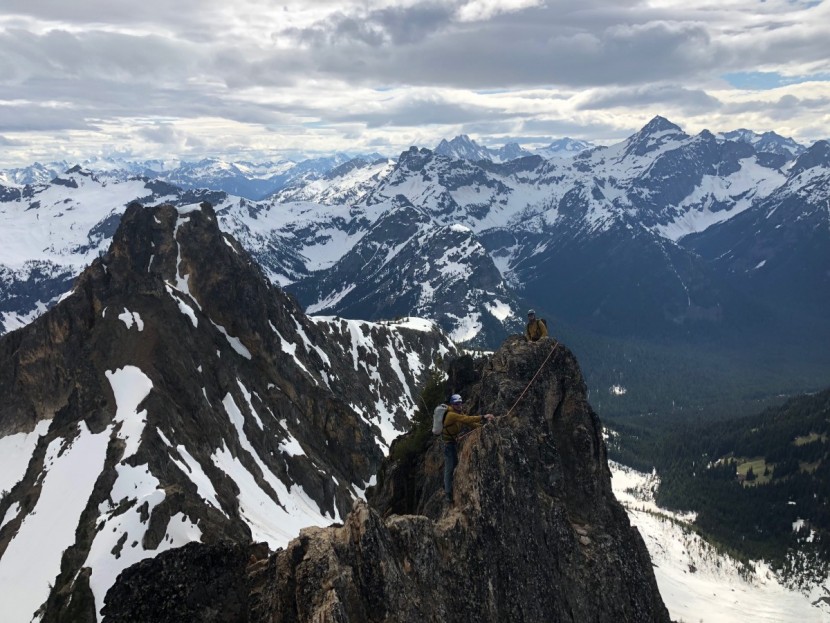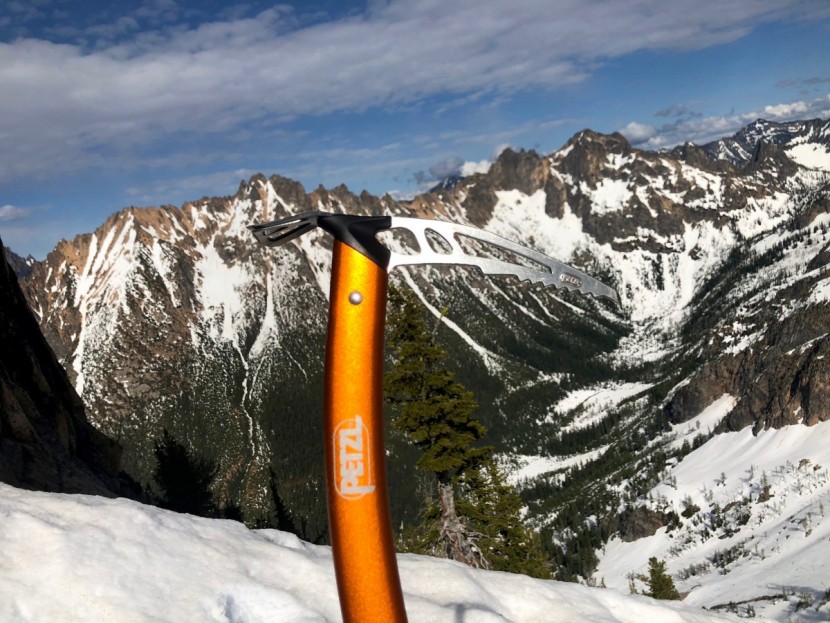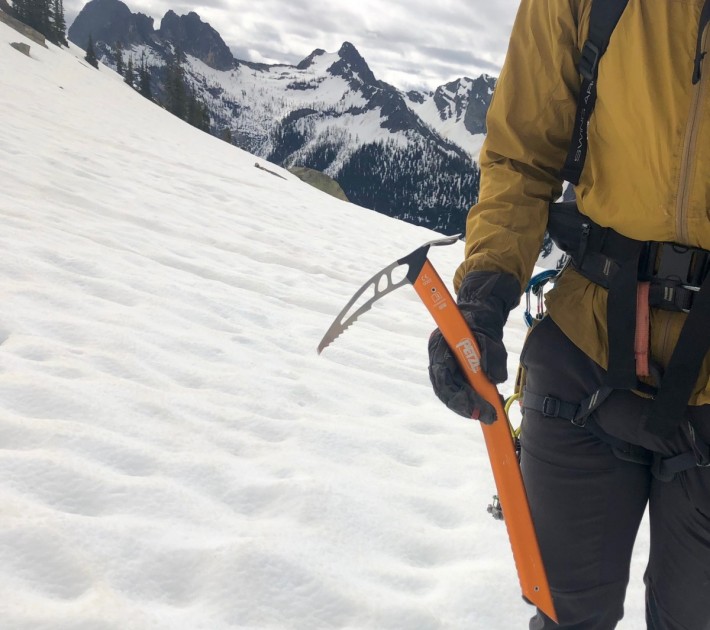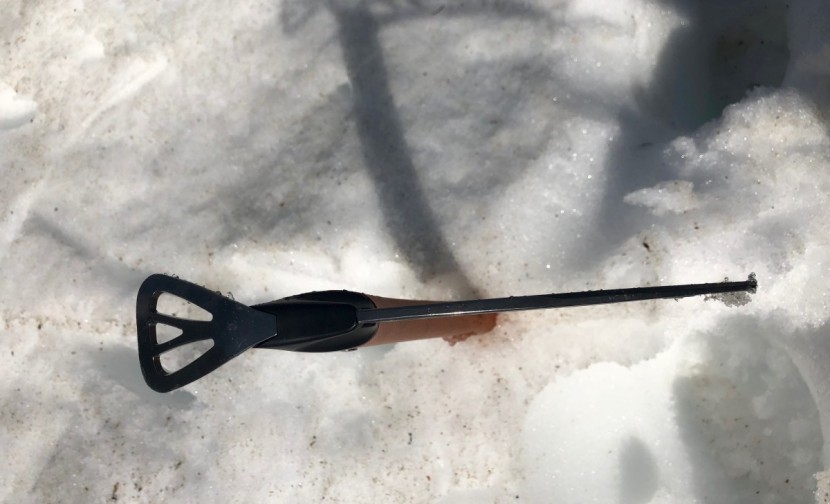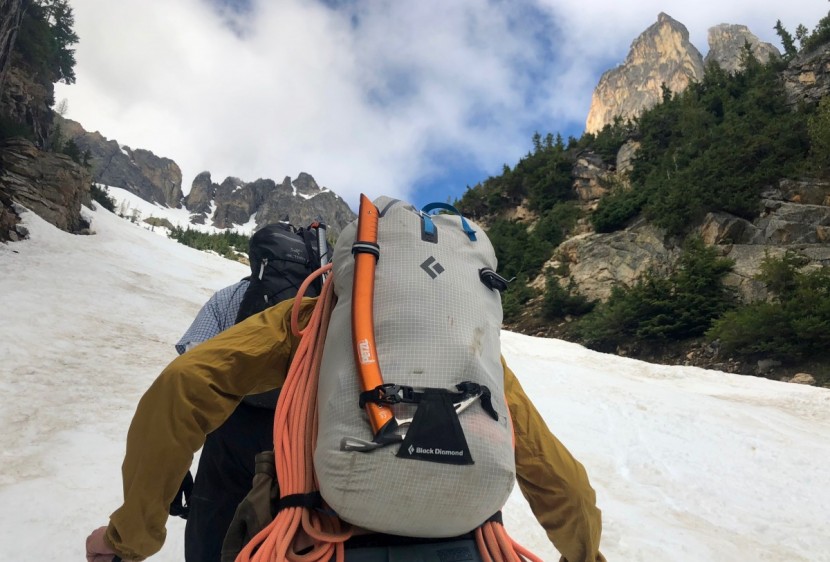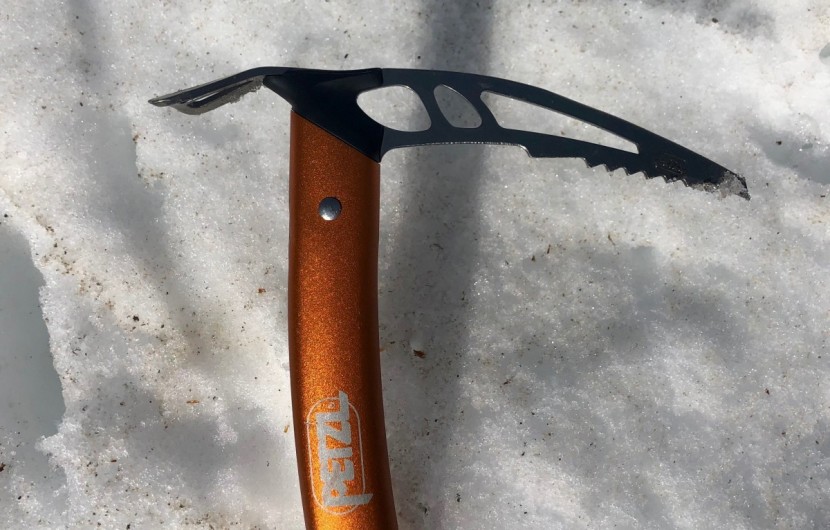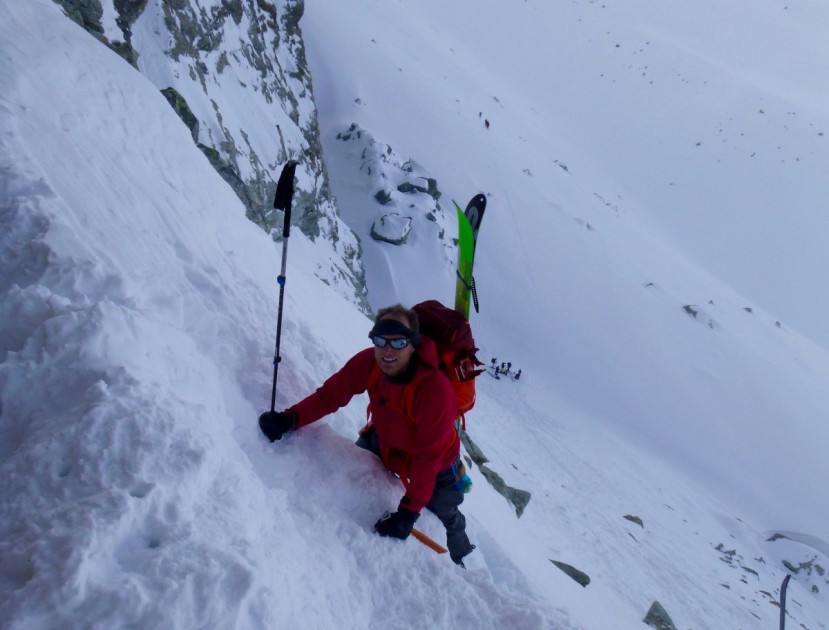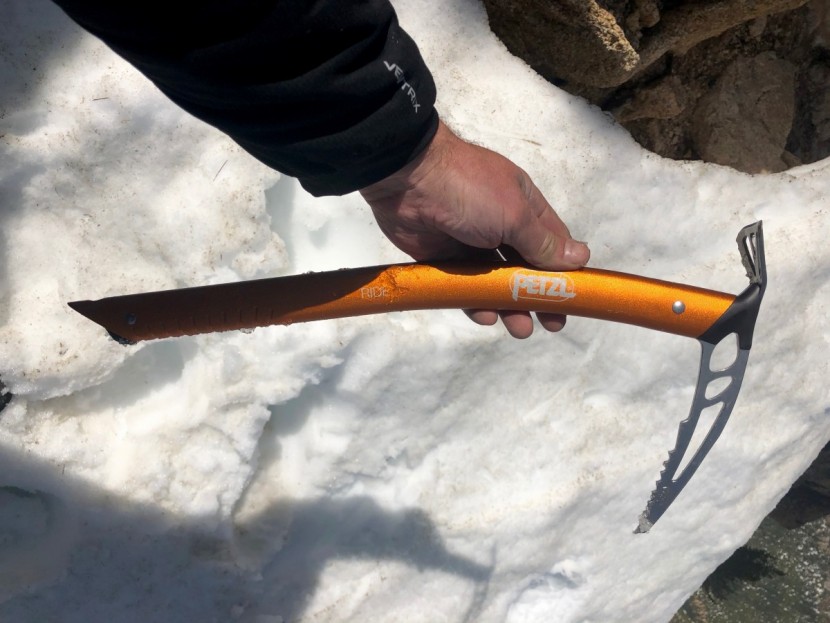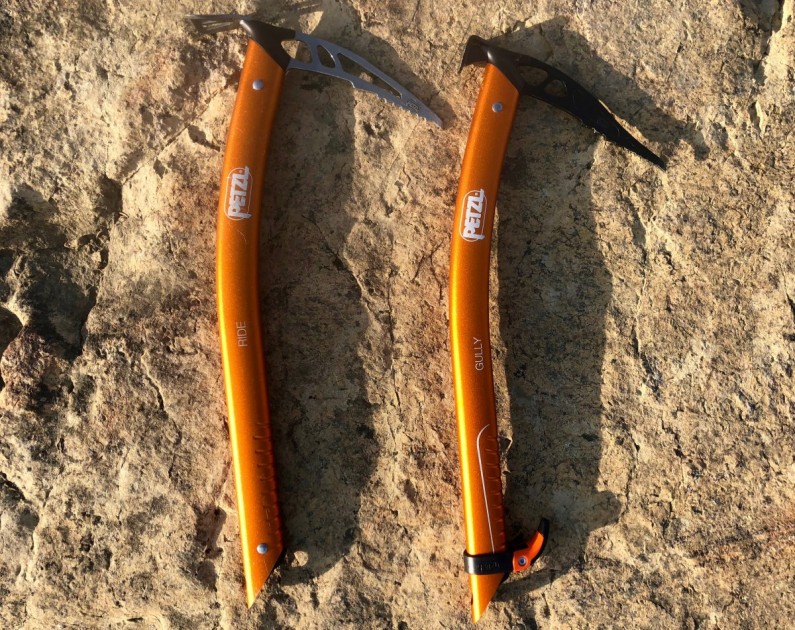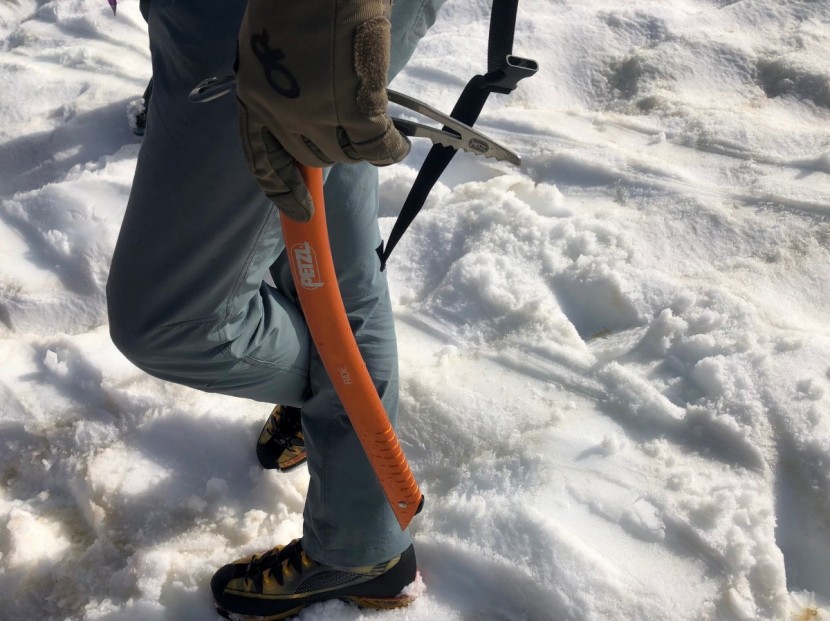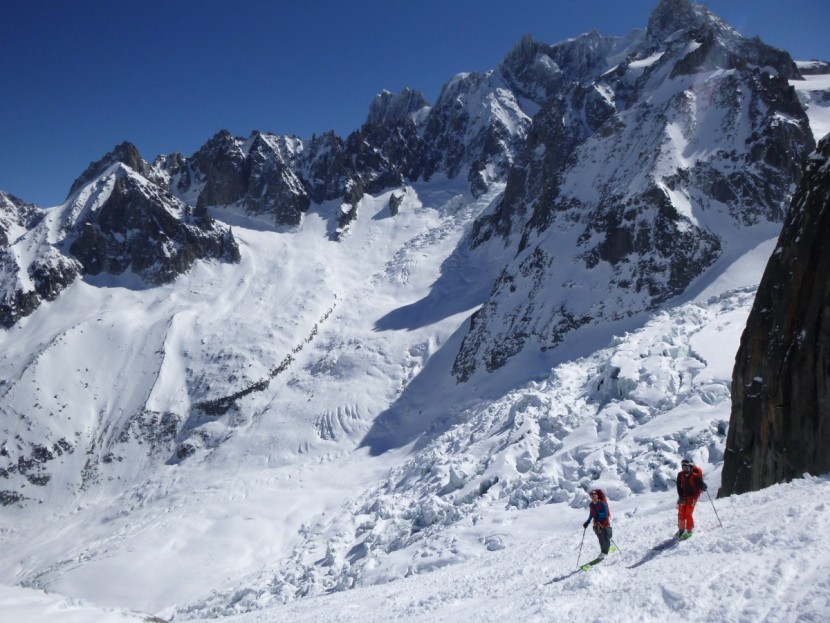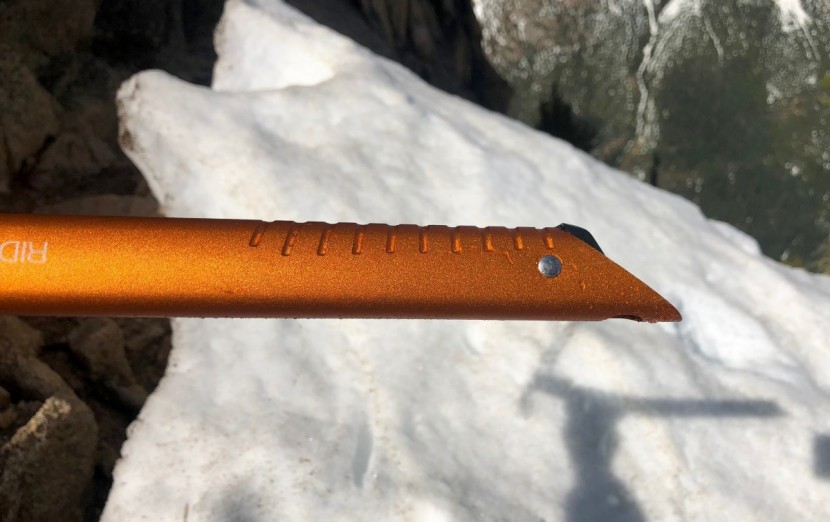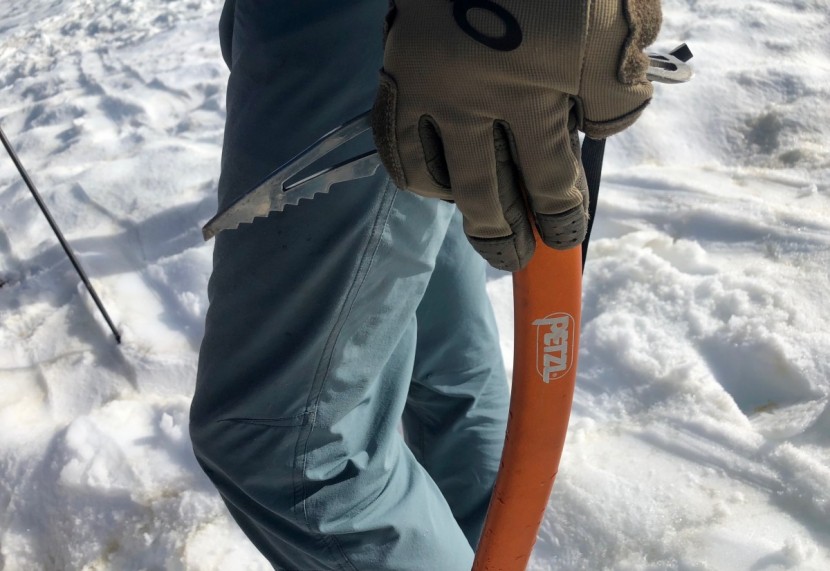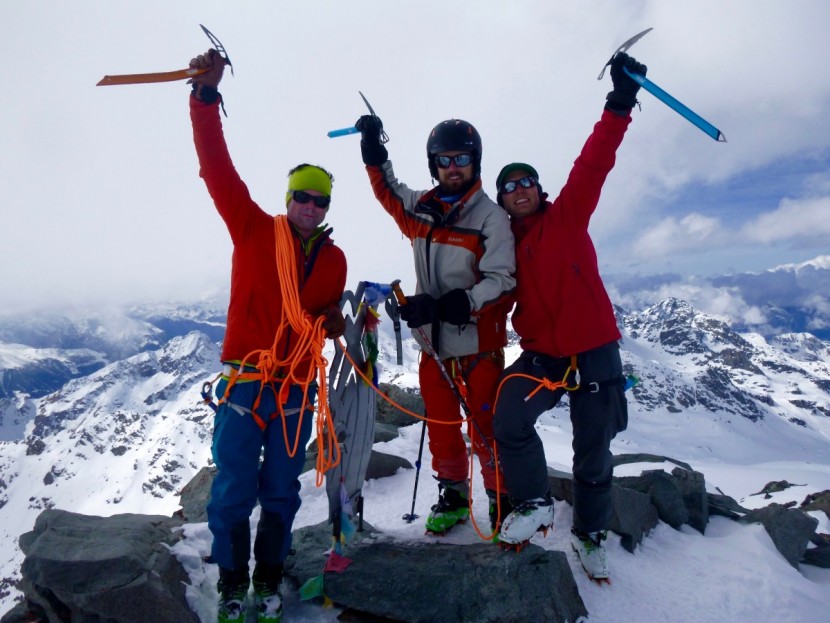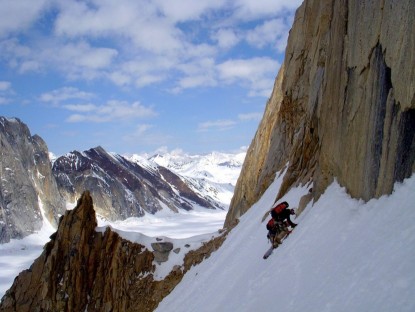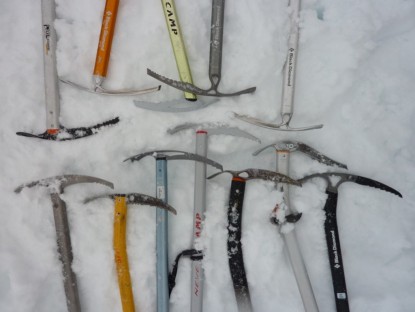Petzl Ride Review
Our Verdict
Compare to Similar Products
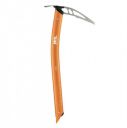 This Product
Petzl Ride | |||||
|---|---|---|---|---|---|
| Awards | Best for Light Weight | Best Bang for the Buck | |||
| Price | $110 List Check Price at Backcountry | $150 List $139.95 at REI | $100 List $109.95 at REI | $110 List $109.95 at REI | $109.95 at REI Compare at 2 sellers |
Overall Score  |
|||||
| Star Rating | |||||
| Bottom Line | Nearly half the weight of many of its all-mountain counterparts, it has a steel pick and proved surprisingly versatile | Incredibly versatile, there are very few mountaineering objectives that this model doesn't perform well on | A solid all-around mountaineering axe that wont break the bank | A surprisingly versatile axe considering its impressively low weight | A solid general mountaineering axe for a great price |
| Rating Categories | Petzl Ride | Petzl Summit | Petzl Glacier | Petzl Glacier Literide | Black Diamond Raven |
| Self-Arresting (15%) | |||||
| Digging & Step Chopping (15%) | |||||
| Use as Improvised Anchor (15%) | |||||
| Steep Ice & Snow (25%) | |||||
| Comfort to Carry (5%) | |||||
| Weight (25%) | |||||
| Specifications | Petzl Ride | Petzl Summit | Petzl Glacier | Petzl Glacier Literide | Black Diamond Raven |
| Measured Weight | 8.4 oz/240 g | 12.6 oz/360 g | 12.3 oz/350 g | 11.2 oz/320 g | 16 oz/437 g |
| Category | Ultralight | General | General | Ultralight | General |
| Rating | CEN-B | CEN-B | CEN-B | CEN-B | CEN-B |
| Pick Shape, Material, and Construction | Tempered steel, classic positive curve | Hot-forged steel, Classic Positive curve | Forged steel, classic positve curve | Forged steel, classic positve curve | Laser cut, stainless steel, classic positive |
| Lengths Available | 45 cm | 52, 59, 66 cm | 60, 68, 75 cm | 50 cm | 55, 60, 65, 70, 75, 80, 90 cm |
| Included Pommel or Leash? | No | No | Yes | No | No |
| Hammer Option | No | No | No | No | No |
| Shaft Design | Bent | Bent | Straight | Straight | Straight |
Our Analysis and Test Results
The Petzl Ride is our Top Pick for Versatility and Ultralight Adventures. It's very nearly the lightest axe we tested but still features a surprisingly functional steel pick/head/adze. It's only available in one length (45cm), but in reality, not one of our testers felt like that was a big deal, as it performed as designed. It's best for adventures into the alpine where you are likely to need an ice axe and could encounter a wide range of conditions, but the terrain you plan to travel isn't too technical, and every ounce matters. It's perfect for ski-mountaineering, accessing alpine rock routes, early-season backpacking, or even some more basic glacier climbs.
Self-Arresting
We really like the shape of the Ride's pick, which strikes a very nice balance between self-arrest performance and steel snow prowess. Its pick is quite tapered for a lighter axe and was able to penetrate firm snow and ice surprisingly well relative to its weight. Even people comparing this with the Petzl Glacier Literide will notice that this model has a thinner pick better suited to daggering into the snow and ascending firmer slopes.
All of our testing team liked the slight bend in the Ride's shaft, which increased leverage on the head while self-arresting as well as climbing in low and mid-dagger positions while climbing.
After extensive side-by-side testing, we found that this model self-arrested the smoothest and the best overall of all the sub-12 ounce axes we tested.
Digging & Step Chopping
The Ride's adze is certainly smaller than most general mountaineering models, and in reality, a little less functional overall. Its adze is surprisingly sharp and thus more functional than other super-light models like the CAMP Corsa Nanotech and the CAMP Corsa, which both sport even smaller aluminum adzes. This is because the Ride can chip away at ice or firm snow far better than either of these models.
These characteristics are some of the main reasons the Ride is a more specialized weight-focused model perfect for ski mountaineering or alpine rock climbing but isn't as well suited to general or glacier mountaineering.
Use As Improvised Anchor
Despite the Ride's short length, it is quite suitable for use as an improvised anchor. Its CE-B rating means it is strong enough to be used as an improvised anchor for crevasse rescue or to use as a deadman while belaying other people up steep snow.
Its lack of a true spike and curved shaft means it isn't as easy to plunge vertically as other straight-shafted models. It has several holes in its head that easily accommodate a carabiner or sling that makes anchoring with it (or incorporating it into an anchor as a secondary piece) easy to do.
Steep Ice and Snow
The Ride provides security in steeper terrain far better than you'd expect from a sub-9 ounce ice axe. It features a heavily tapered positive curve steel pick that is designed to excel at climbing steep terrain and penetrating firm snow.
Even the angle of the adze is designed to position your hand in the perfect place while low-daggering/piolet panne into the snow more so than it is for chopping steps.
The slight curve of the Ride's shaft also helps the user get more leverage and thus better purchase while in mid-dagger/piolet appui positions. There's also the added benefit of keeping the user's hand slightly more out of the snow, thus staying warmer and drier, depending on conditions. We also liked the small grooves that are machined into the Ride's lower shaft.
While we typically would never imagine ourselves swinging the Ride like an ice tool (piolet traxion), we found ourselves doing it far more than expected; this is because the Ride is so light.
The weight is centered in the head, and we felt it was an easier way to get solid purchase in firmer conditions while pulling a small bergschrund or in a steep section while booting a couloir.
Comfort to Carry
Like most European manufactured ice axes, the Ride is most comfortable in self-belay/piolet canne (pick forward) position but is the most comfortable sub 12-ounce axe to carry in self-arrest/pick backward position.
Petzl just removed all the teeth on the pick that are close to the adze, allowing for a smooth, comfortable place to hang on to. While this is a small design feature update, we certainly appreciated it.
Weight
At 8.4 ounces, the Ride is the lightest axe we tested to feature a steel head and one of the lightest overall. The only model that was lighter is the 100% aluminum CAMP Corsa (7.2 ounces), which isn't nearly as versatile and is only 1.2 ounces lighter.
The Ride is impressively lighter than the CAMP Corsa Nanotech (8.7 ounces), which is nearly entirely aluminum, save for a thin piece of steel riveted onto the end of its mostly aluminum pick.
The Ride can achieve fairly high performance with such a low weight thanks to a few design characteristics. It's only available in a 45cm length and is the shortest of any of the ultralight models we tested (not by much, as the other models are available in a 50cm length). The adze is undersized compared to most general mountaineering models, and its pick and adze are filled will holes. Despite all these things, we didn't feel like Petzl cut any corners when it came to its steep snow climbing performance or ability to self-arrest - two of the most important characteristics of an ice axe.
Value
The Ride is in line with most other models with a similar, more weight-conscious design focus. It's also one of the lightest models to feature a steel pick and adze. Like all ultralight models, the Ride is versatile, and we found it to offer a higher level of versatility than any other sub-12 ounce model.
Conclusion
We like several of the different ultralight options for specific applications, but if we could only have one weight-conscious model, the Petzl Ride would be it. It's very nearly the lightest in the fleet, and still offers the highest across the board performance of any sub-12 ounce model we tested. It features the best combination of steep snow climbing performance, ability to self-arrest, and weight of any model. We could even pound the occasional snow-picket with it and would easily consider using it for basic glacier climbs, which is something that our testing team wouldn't consider doing with the majority of other ultralight axes.


